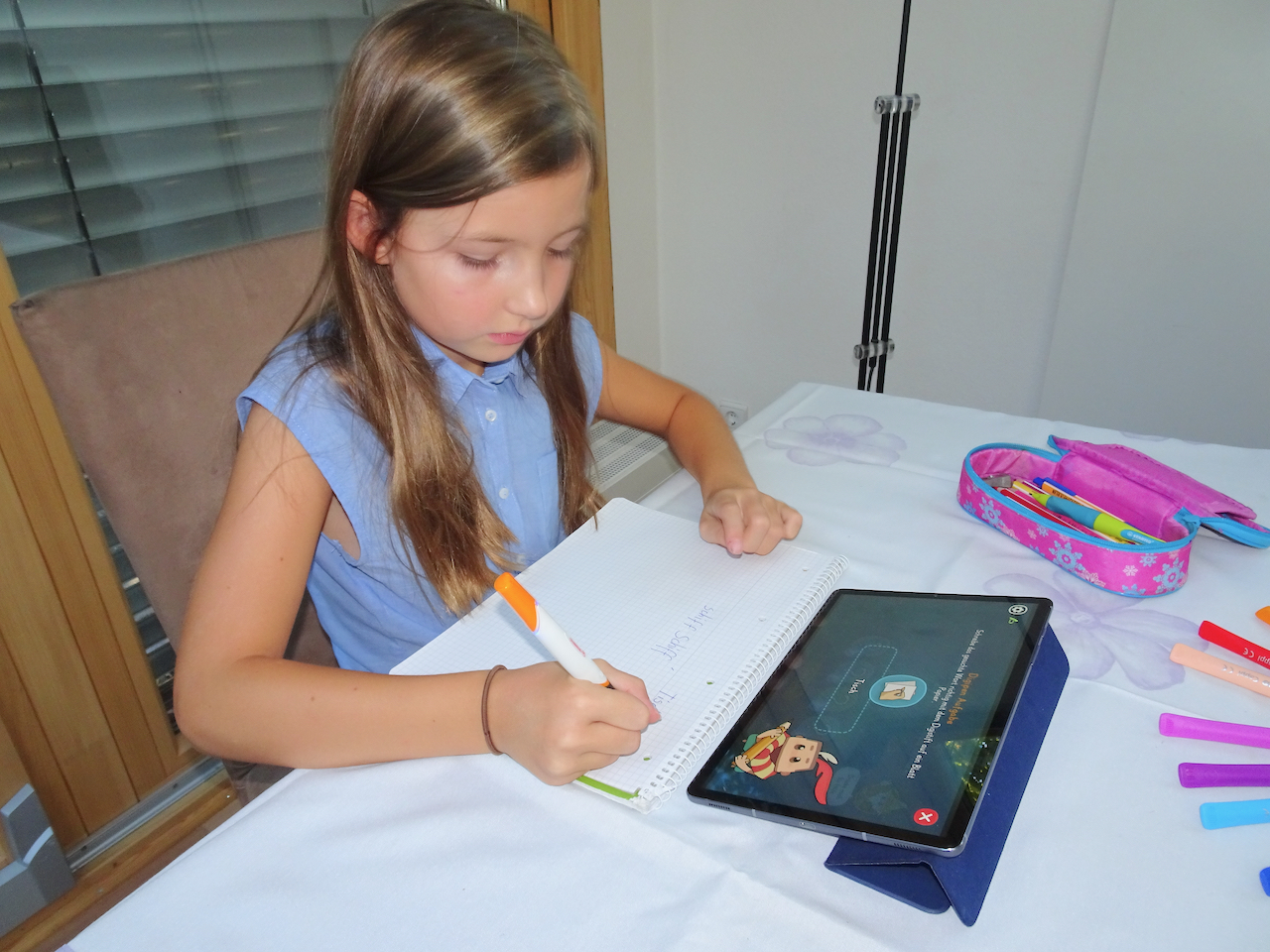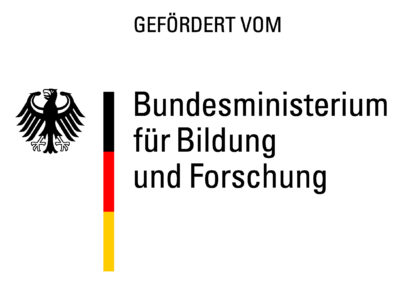The research project Schreibtrainer (Writing Trainer) aimed at developing the technological basis for the demonstration of a new exercise concept based on an electronic pen equipped with inertial and force sensors in combination with AI-based signal processing to improve spelling and writing. In a field test, fourth and fifth grade students worked on different tasks that were presented in the context of a construction game on a tablet computer. This was wirelessly coupled with the electronic pen to reliably detect writing and spelling errors. The tablet provided immediate feedback and assistance to support the students’ work. Students are thus motivated to improve their writing and spelling as they write.
These successes were achieved:
- Handwriting recognition was noticeably improved.
- For the handwriting recognition training, 350 new recordings of 215 perso- nents were recorded using 43 different pens. In total, 34,950 elements (words or sentences) were collected during the project.
- An engaging game was developed that presented five different, modular task types.
- Before each task type, 20 different tasks were defined and implemented according to didactic aspects.
- An algorithm was developed that automatically generates the possible misspellings for each solution word.
- A data protection compliant storage and processing of the student data in the cloud was realized.
- The system was tested with 5 classes in 3 schools in spring 2022.
- In addition, the Student Challenge of the renowned UBICOMP conference with tasks for the classification of digipen data was organized for two years. Initially, additional funding had been promised for this, but in the end this work had to be taken over by the Schreibtrainer Project.

The acceptance of the system by the children was high, even though it became apparent that the recognition of children’s handwriting posed particular difficulties. This proved the validity of this promising approach, although further research is needed to make it robust and versatile enough for general use.
The „Schreibtrainer“ research program was supported by the German Ministry of Education and Research in the context of the R&D-Program “Innovations- und Technologiepartnerschaften für die Mensch-Technik-Interaktion: Intelligente, vernetzte Gegenstände für den Alltag”, which was performed by a consortium consisting of
- Fraunhofer IIS in Nuremberg
- Kinemic in Karlsruhe
- the Research Institute for Digital Education [FoBiD] and the Chair of Didactics of German [DID] of Saarland University and
- STABILO in Heroldsberg.
